Organizing Tackle as a Pro and Amateur
Despite just being in his mid-20’s, Cody Bertrand has accomplished more as a bass angler than most have in a career. He began his quest to compete as a professional bass angler as a co-angler in the Bassmaster Open Tournaments. In his first full season he won. Now in 2020 he is competing as a professional in the same tournaments.
In our previous blog, Fishing Up Front: Going from Co to Pro, Bertrand discussed lessons as a co-angler and when to make the leap to the next level. Today he discusses the importance of organizing tackle effectively as both a co-angler and professional.
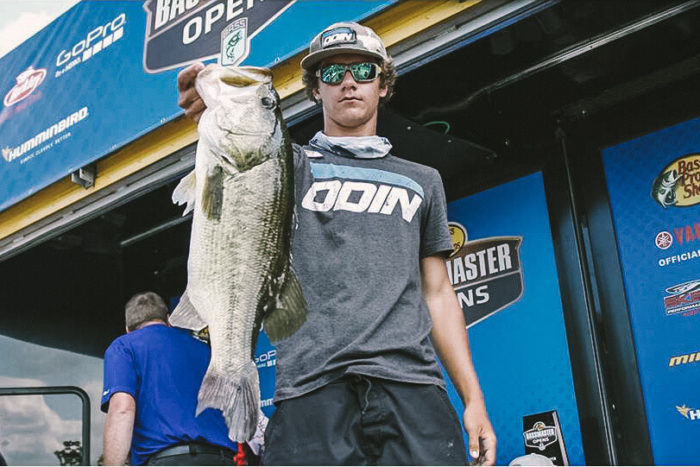
Organizing Fishing Tackle as an Amateur
“Co-anglers are at a disadvantage,” Bertrand quickly points out. “Essentially, a boat is an angler’s office, so professionals have the luxury to pack everything they might need throughout the day. This is not the case for co-anglers. We are visitors.”
Co-anglers have limitations on how much tackle they can bring. They can expect to have a single empty compartment behind one of the seats to stow tackle, and that is it. “I can’t emphasize enough how much practicing for events as a co-angler helped me with tackle,” insists Bertrand. “I learned right away that without any experience on the water, it was impossible to know what to pack. But when I practiced, I knew what to pack and what to leave behind.”
"I learned right away that without any experience on the water, it was impossible to know what to pack. But when I practiced, I knew what to pack and what to leave behind."
Cody Bertrand Tweet
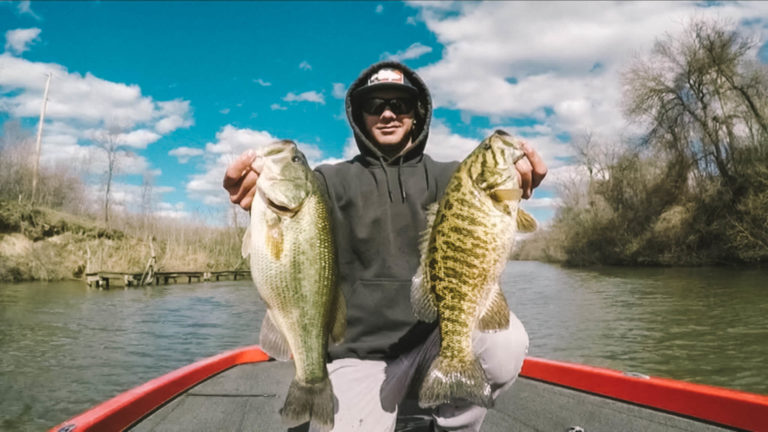
“If the professional I was partnered up with would share some knowledge on his fishing style or pattern the beforehand, I could combine that information and my experience to really narrow it down.”
Hard baits such as crankbaits and jerkbaits demand a hard case, such as a Plano 3600 box, or baits could get damaged. “[As a co-angler] I brought Plano boxes to store extra hooks and hard baits, but I really tried to limit the number of hard baits.” Practice would clue him in on which hard baits to pack.
Rods are also limited for co-anglers. “6 rods are the maximum you should bring,” asserts Bertrand. “Remember that the boat is the professional’s office, and it’s important to avoid crowding him. Plus, with the limited space for rods, too many will cause tangled messes.”
Organizing Fishing Tackle as a Professional
Bertrand says, “While I was a co-angler, I learned from the pros to keep things simple. The tackle I am most likely to use has the easiest access. That means I will be rearranging tackle often, maybe daily. This can only be done if the boat is kept clean; not so much the deck, but the compartments.”
“Being scatterbrained is one of the worst things you can do to yourself.”
Preparation begins while still at home, “Before leaving for a trip, I will rig up two dozen rods with fresh line and the baits I’m most likely to use. Research on the fishery guides me on which baits to rig.”
He adds, “Of course I adjust them during practice, but maximizing time is a necessity, even during practice. Typically, I have 10-15 rods on the deck at all times.”
“I don’t want any tools that are not up to their maximum efficiency.” He explains, “Fishing line is a tool that gets matched up with another tool – the fishing reel. Line is bound to get damaged and when it does, I replace it immediately on the spot.” Bertrand contends that it is more advantageous to spend 5 minutes respooling on the boat than to use another rod that may not be as specialized.
"The lessons I learned as a co-angler were essential to the success I’m now having."
Cody Bertrand Tweet
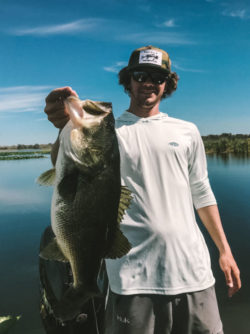
Additional Tackle to Pack
In addition to fishing tackle, Bertrand feels that responsible boat owners prepare for emergencies by packing the following items:
- Towline
- Toilet paper
- Oar
- Jumper cables
- First aid
- Spare life jacket
“As a professional angler, time management and decision making are the biggest challenges. There is not enough time in practice to dissect every little nook and cranny. The tournament is the time to learn the intricate details. Solid organization makes it possible to do this under pressure. The lessons I learned as a co-angler were essential to the success I’m now having.”
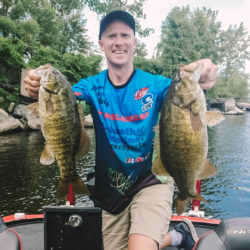
Andrew Buss
Andrew Buss resides with his family in the great state of Indiana. When he’s not fishing, creating YouTube videos or running the R&B Bass Circuit, he poses as a school teacher. If you’d like to see more from the #hunteroffish check out his social media channels.
Did you also see?
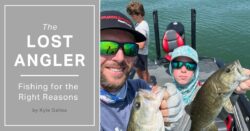
Fishing For The Right Reasons
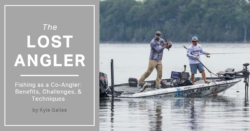
Fishing as a Co-Angler: Benefits, Challenges, and Techniques
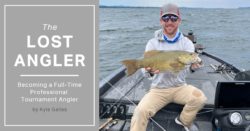

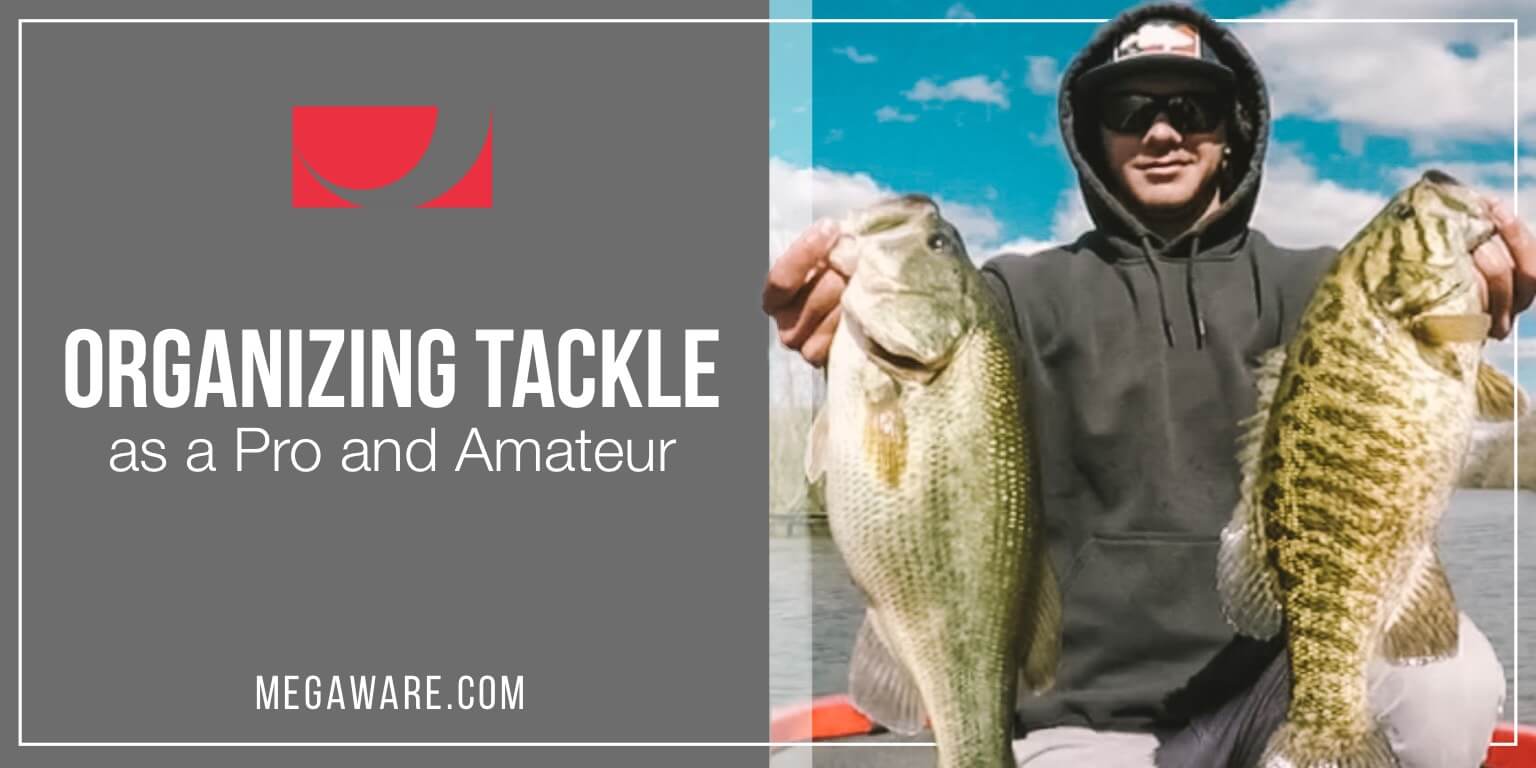
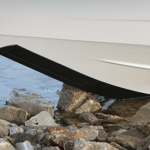

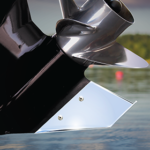
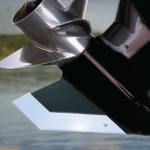
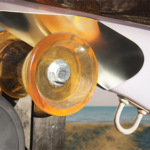
Comments